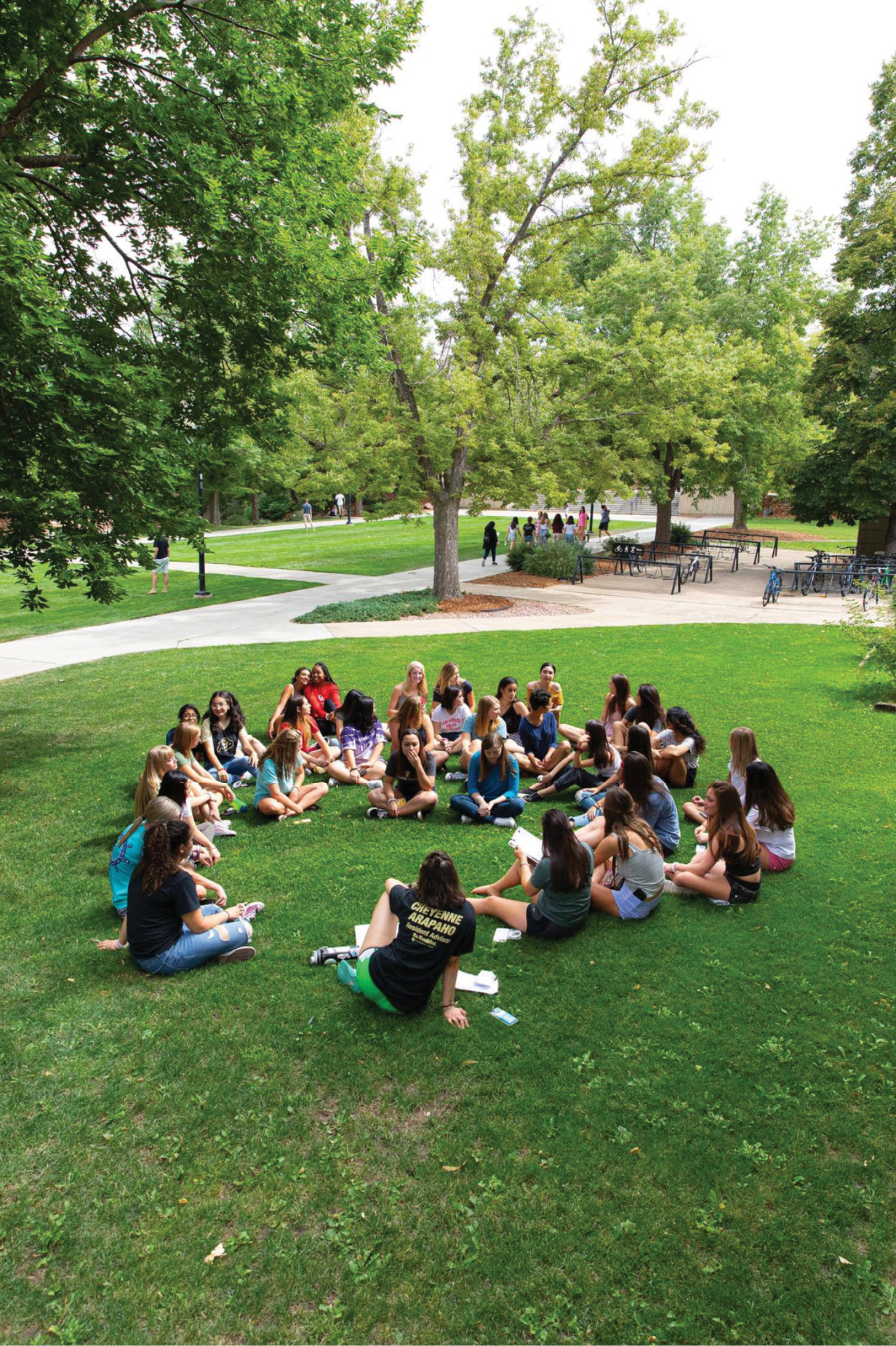Higher education in Colorado is higher in more ways than one, and not just because many of its campuses are more than a mile above sea level. The many colleges and universities of the Centennial State have forged a reputation and a legacy for delivering economic results and bettering society in the process.
Take the Colorado State University System, for example. The Center for World University Rankings places CSU in the top 1% of all universities worldwide for overall quality and excellence, while the Financial Times Online MBA ranking places the College of Business’s Online MBA program at CSU at No. 15 in the world.
Overall, the CSU system educates over 60,000 students every year, employs 23,000 Colorado workers, and counts more than 112,500 alumni in the Colorado workforce.
But that’s not all. Fully half of the students who move to Colorado to attend a CSU institution end up staying and working in the state. One out of every 25 workers in Colorado holds a degree from a CSU campus. Together, they pay 3% of all state taxes.
With CSU Fort Collins, CSU Pueblo and CSU Global, the university system is known for being connected to local and regional communities. CSU ranks first in the U.S. for public engagement in the Sustainable Campus Index, a publication of the Association for the Advancement of Sustainability in Higher Education; and the university system ranks No. 6 in the nation among all environmentally responsible colleges, according to Princeton Review.
In a state where 42% of all residents have a bachelor’s degree or higher, Colorado is the place to which companies turn when they need to hire top-tier talent. Whether it’s the top-ranked engineering program at Colorado School of Mines or best-in-class medical scientists at the University of Colorado Anschutz Medical Campus, the knowledge workers who comprise these ranks stack up well against the best labor pools found anywhere on the planet.
Think the graduates of MIT, Stanford and Harvard make better workers? Think again. Colorado is the third fastest-growing state in America for total technology employment and is projected to grow at the third highest rate in the U.S. between now and 2032, according to the Cyberstates 2022 report put out by CompTIA.
Many of these workers will come from the University of Colorado in Boulder and CU Anschutz. CU has four campuses: Boulder, Anschutz, Denver and Colorado Springs. Collectively, they educate more than 66,000 students annually.
The largest of these is CU Boulder with 36,430. During the 2021-2022 fiscal year, CU awarded 17,445 degrees across its four-campus system. Of the 513,000 living CU alumni, more than 300,000 call Colorado home.
CU is also known as one of the most successful universities in the country for impacting economic development. Over the past 25 years, CU has fostered nearly 200 business startups, placing CU in the top 5% nationally for launching new businesses.
CU contributes to the state and national economy in other ways. Its affiliate hospitals generate an annual economic impact of $13.3 billion; and the U.S. space program would not be leaving this earth without CU graduates at the helm. The University of Colorado has produced 20 astronauts who have been part of the space program since the Mercury missions.
Beyond the large state schools, the much smaller private liberal arts school known as Colorado College in Colorado Springs ranks among the very best in the nation in multiple categories. A private institution founded in 1874, the 100-acre campus educates 2,241 students and ranks No. 27 in America in the 2022-2023 edition of Best Colleges among all liberal arts schools. Colorado College also ranks No. 9 for Best Undergraduate Teaching and No. 27 in Best Value.

